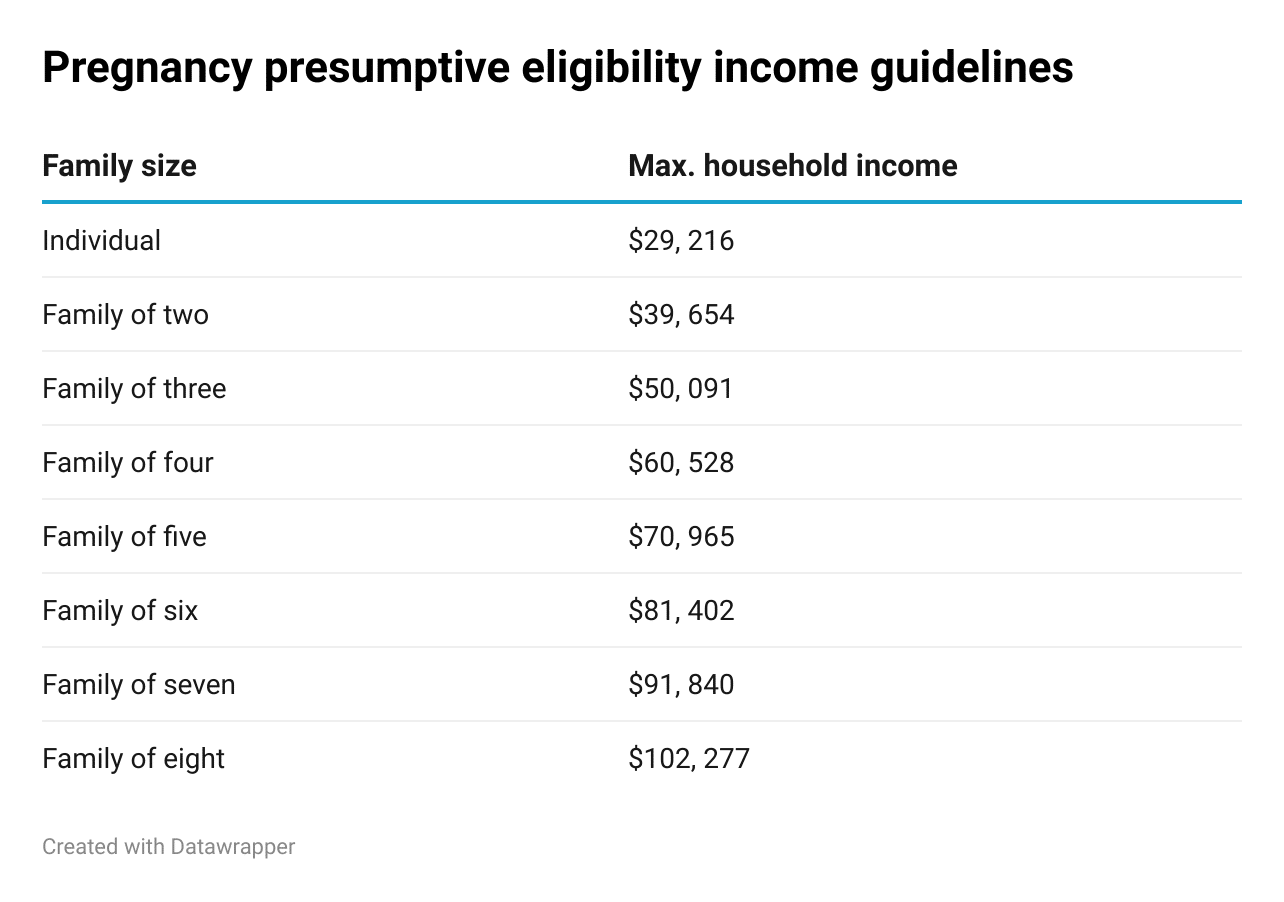Mississippi Today
An independent path might be easiest if Thomas Duff runs for governor
Billionaire businessman Thomas Duff of Hattiesburg might be the ideal person to challenge Mississippi's two-party political system.
Reporting by Mississippi Today's Geoff Pender revealed that Duff is seriously contemplating running in 2027 as a Republican for the open seat of governor.
But what if Duff chose the radical path of running as an independent? Could he win?
READ MORE: Will a Mississippi billionaire run for governor in the poorest state?
Granted, there is no certainty at this point that Duff is even running, and he has likely not even considered an independent candidacy. But Duff would be in a unique position to launch what would be a historic independent campaign that might be the political unknown's easiest path to victory.
Numerous polls through the years have shown that Americans have an unfavorable opinion of at least one of the two major parties and a negative overall view of the two-party system.
But one of the primary obstacles for a candidate not affiliated with a major party, especially in a poor state like Mississippi, is the inability to raise campaign funds. Money would presumably not be an issue for Duff, who owns the Southern Tire Mart chain and has, along with his brother Jim Duff, a reported net worth of $7 billion.
The conventional wisdom is that if Duff does run, he could and would self-finance his campaign. Not many Mississippians could write themselves a check for the $12 million or more that is typically needed to run a serious statewide campaign for governor, but Duff is one of them.
Duff would be much different than any past independent or third party candidate in Mississippi, and a case could be made that he would get more bang for his buck as an independent.
If Duff ran as a Republican, he could face the daunting task of needing to spend considerable funds to battle in a party primary against what could be a crowded field of veteran statewide officeholders.
Instead, he could run as an independent, avoid an expensive party primary and direct his personal funds to a November general election, when he would face the Republican and Democratic nominees.
In such a scenario, a winning equation for Duff might be to siphon off a sizable number of votes from the Republican nominee and a smaller number of votes from the Democrat. And if no candidate obtained a majority of the votes, the top two vote-getters would advance to a runoff four weeks after the general election.
Because of Black Mississippians' allegiance to the Democratic Party, an argument could be made that the Democrat would finish first in the November general election with a little less than 40% of the vote, with Duff and the Republican battling to be the second-place vote-getter and advance to the runoff.
To think such a runoff would not be feasible, remember that in the 2023 gubernatorial election, Democrat Brandon Presley missed a runoff against Republican winner Tate Reeves by about 15,000 votes. And the third-party candidate in that 2023 election did little more than place her name on the ballot.
If Duff made that hypothetical runoff against the Democrat, he most likely would be the favorite. And in a runoff against the Republican, he surely would have a puncher's chance to prevail.
After all, if Duff made the runoff, people would be seeking him out to make contributions, especially if he was campaigning against the Democrat.
Granted, independents don't have a successful track record in Mississippi. There are currently two independents in the state House and just a handful of independents on the local level.
In the past independents faced an even more difficult time in Mississippi because of a constitutional provision that made it virtually impossible for an independent or third party candidate to win statewide office.
Until Mississippi voters changed the Constitution in 2020, if a candidate for statewide office did not garner both a majority of the popular vote and win a majority of the 122 House districts, it was left up to House members to select a winner from the top two vote-getters. It was hard to fathom a scenario where the House would not select the major party candidate.
But now, if no candidate obtains a majority of the vote, the top two vote-getters advance to a runoff.
Independents have won statewide elections in rare instances in other states — Minnesota and Maine, for instance.
Little is known about Duff's policy positions. He served on the Institutions of Higher Learning Board as an appointee of former Gov. Phil Bryant and has donated to various Republican politicians.
But the persona of being a non-politician running for office as an independent could be appealing — especially if the candidate has the money to highlight that persona statewide.
This article first appeared on Mississippi Today and is republished here under a Creative Commons license.
Mississippi Today
A new law to improve pregnancy outcomes took effect Monday. But how someone can receive timely prenatal care is still unclear.

Despite presumptive Medicaid eligibility for pregnant women going into effect Monday, it's still not clear how low-income pregnant women can get the timely prenatal care the law is supposed to make possible.
House Bill 539, which was signed into law by the governor on March 12, allows eligible, low-income pregnant women to receive immediate care covered by Medicaid while they wait for their application to be officially approved by the Division of Medicaid. Applications are supposed to take no longer than 45 days to process, though recent data shows nearly a third of applications in Mississippi took longer than that, bringing pregnant women well into their first trimester – when about 80% of miscarriages occur.
The policy, which Mississippi lawmakers hope will help mitigate the state's poor maternal and infant health metrics – some of the worst in the country – exists in 29 other states and Washington D.C.
Mississippi Today reached out to the Division of Medicaid in late May to request an interview over the next month with an agency official to discuss what the process of presumptive eligibility and timely care for pregnant women would look like once the law went into effect July 1. The reporter continued each week to reach out to spokesperson Matt Westerfield, who on June 10 said the agency was “exploring some options” for the interview.
On June 28, Westerfield said implementation is “complex” and that the agency would only communicate through “written exchanges.”
The agency on Tuesday issued a general statement about its commitment to implementing the policy – with no details about any outreach, public education or provider training to date.
“The Mississippi Division of Medicaid will continue to do the necessary due diligence to ensure providers interested in making presumptive eligibility determinations are qualified and trained,” Westerfield said in an email.
Not all providers who accept Medicaid will be automatically able to participate in presumptive eligibility, according to a brief explainer on Medicaid's website posted at the end of June.
Doctors and other qualifying providers must complete an application and undergo eligibility determination training, in addition to submitting a memorandum of understanding with the agency once approved. Then, a pregnant woman whose income falls below 194% of the federal poverty level – about $29,000 annually for an individual – can bring proof of income to the doctor and, if approved, receive prenatal care the same day.
Westerfield said in an emailed statement in May that the agency would communicate to the public which locations are participating in the program, but said that they were “still working on what that outreach will look like.”
As of Tuesday, it is still unclear which, if any, providers are participating and whether Medicaid has sent any communication about the steps they must take if they want to participate.

“Medicaid clearly knows that the intent of the Legislature is for pregnant women to get in to see their doctor as early as possible, and they are working to stand up this program that is now the law,” said House Medicaid Chair and the bill's author Missy McGee, a Republican from Hattiesburg. “As the author of this legislation, I will be closely monitoring the rollout of this new program and am optimistic that it will be done in a timely manner.”
The Legislature made the bill broad enough that the Division of Medicaid would have the freedom to implement it in whatever way it saw fit, McGee explained.
“ … The Legislature's job is to create the policy. Now that it is law, it is Medicaid's job to implement it.”
Mississippi Today reached out to University of Mississippi Medical Center – Mississippi's largest Medicaid provider – to determine what, if any, communication it has received about how presumptive eligibility will work.
“We are still checking into the process for this, but don't have any comment at this time,” a hospital spokesperson told Mississippi Today on Tuesday.
In March, the number of Mississippi Medicaid applications that took more than 45 days to be processed was 29%, according to data from the Centers for Medicare and Medicaid Services, due to “unwinding.” State Medicaid divisions across the country began reviewing their rolls last year for the first time in three years after the end of COVID-19 restrictions that prevented them from unenrolling beneficiaries, and Mississippi at times had a significant application backlog.
Without presumptive eligibility, pregnant women are forced to pay out of pocket or go without care in this interim period. Early prenatal care has been proven to mitigate a number of pregnancy-related problems including hypertension – the leading cause of maternal mortality in Mississippi and across the country – and preterm births, in which Mississippi leads the nation.
The state received more than $2 million of federal funds and an additional $602,000 in state money to implement the program, according to the 2024 Medicaid appropriation bill.
Advocates of the policy have said the program pays for itself when compared to how much it costs the state to care for one infant's prolonged stay in a neonatal intensive care unit, which can easily top $1 million, according to a study published in the American Medical Association Journal of Ethics.
How to know if you qualify
Anyone who is pregnant and makes at or below 194% of the federal poverty level qualifies for Medicaid and for presumptive eligibility. These individuals can start receiving care a soon as they find out they're pregnant by showing proof of monthly income to a doctor at a qualifying location.
While it's not known which providers, if any, have chosen to participate so far, Mississippi Today will continue to monitor the Division of Medicaid's implementation of the policy and report on qualifying providers as they sign up.

This article first appeared on Mississippi Today and is republished here under a Creative Commons license.
Did you miss our previous article…
https://www.biloxinewsevents.com/?p=372033
Mississippi Today
Dau Mabil’s brother goes back to court to get independent autopsy started
The brother of Dau Mabil, the Jackson man whose body was recovered from the Pearl River three weeks after he disappeared, is asking a judge to enforce an order to allow an independent autopsy to proceed.
The state's autopsy, released late last month, determined death by drowning by unknown cause.
In a Monday court filing, Bul Mabil of Texas argues that his brother's widow, Karissa Bowley, is preventing the second autopsy by vetoing his choice of a qualified forensic pathologist, Dr. Matthias Okoye of Nebraska.
“This Court did not authorize Karissa Bowley to select or veto the pathologist to conduct the independent autopsy of Dau Garang Mabil,” Lisa Ross, Bul Mabil's attorney, wrote in the order.
The court set a requirement for the pathologist to be at least as qualified as pathologists who conduct autopsies for the State of Mississippi along with having certain degrees or certifications. Ross argues that Okoye meets the requirements set in the court order.
Okoye is director of the Nebraska Institute of Forensic Sciences, a nonprofit organization that operates the forensic pathologist division of the coroner's office for several counties in the state.
He has investigated and certified over 15,000 deaths as a deputy and chief medical examiner and a coroner's pathologist and has performed over 12,000 autopsies, according to his curriculum vitae included in court records.
Spencer Bowley wrote in a Sunday email that his sister disagrees with Bul Mabil's choice of Okoye, who Bowley noted was previously sued for providing false information in an autopsy report.
“Dau deserves nothing less than to have all answerable questions answered regarding his death,” he wrote. “We will continue seeking to agree on a pathologist to pursue truth, rather than any individual person or organization's agenda.”
More than a decade ago, a daycare provider sued Okoye, who authored the report used to charge her with felony child abuse for the death of a 6-week-old. The charges were later dropped.
Okoye ruled the infant died from homicide from blunt force trauma to the head and asphyxiation. Pathologists hired by the plaintiff found the infant's death was due to sudden infant death syndrome.
In 2014, the Nebraska Supreme Court ruled in the woman's malicious prosecution lawsuit by reversing the lower court's order to grant Okoye and his organization summary judgment, finding “differing reasonable inferences (that) could be drawn as to whether Okoye knowingly provided false or misleading information in his autopsy report.”
Another forensic pathologist offered by Bul Mabil is Dr. Frank Peretti of Arkansas, but Ross wrote in the filing that he declined to conduct the autopsy because of a potential conflict of interest.
Bowley has offered the names of four forensic pathologists, according to a Friday email from her attorney John David Sanford included in court records.
Okoye has also conducted an independent autopsy for at least one other Mississippi resident: Lee Demond Smith, who died in the Harrison County Jail, according to an affidavit contained in the court records. His ruling disagreed with the county pathologist's ruling.
As of Tuesday afternoon, a court hearing had not been scheduled to consider the motion.
The delay comes a week and a half after the Bowleys released the state's autopsy results.
That day, Ross began asking the Department of Public Safety's attorney if Mabil's body was ready to be released. She received confirmation about a week later.
As part of requirements for the autopsy, the court set a 30-day window for the autopsy to be conducted.
Now that Capitol Police have finished its investigation, Ross is asking the court to act so the autopsy can be done within 30 days of June 27, which is when she received confirmation.
In May, Bowley agreed to allow a second autopsy, and Hinds County Chancery Judge Dewayne Thomas wrote that it would be paid for at Bul Mabil's “direction and expense.”
This article first appeared on Mississippi Today and is republished here under a Creative Commons license.
Mississippi Today
Federal judge blocks Mississippi online age verification law
A federal judge has issued an injunction halting a Mississippi law requiring online platforms to verify the ages of users.
Mississippi lawmakers, parroting measures passed by legislatures in several other states, passed House Bill 1126 this year, saying it would protect children from explicit online content. The law was set to take effect Monday, but the tech industry group NetChoice sued the state in June, claiming it would unconstitutionally limit adults' free speech and privacy.
U.S. District Judge Sul Ozerden granted NetChoice's request for a preliminary injunction halting the law while the case moves forward. He said the plaintiff's claim shows “a substantial likelihood of success on the merits of its claim” of the unconstitutionality of the law.
NetChoice is fighting similar laws in other states and has secured several similar injunctions.
“An unconstitutional law will protect no one,”Chris Marchese, director of the NetChoice Litigation Center, said in a statement. “We're pleased the court sided with the First Amendment and stopped Mississippi's law from censoring online speech, limiting access to lawful information and undermining user privacy and security as our case proceeds. We look forward to seeing the law struck down permanently.
“If HB 1126 ultimately takes effect, mandating age and identity verification for digital services will undermine privacy and stifle the free exchange of ideas. Mississippi also commandeers websites to censor broad categories of protected speech, blocking access to important educational resources. Mississippians have a First Amendment right to access lawful information online free from government censorship.”
The Mississippi law, authored by Rep. Jill Ford, R-Madison, is called the “Walker Montgomery Protecting Children Online Act,” named after a Mississippi teen who reportedly committed suicide after an overseas online predator threatened to blackmail him.
This article first appeared on Mississippi Today and is republished here under a Creative Commons license.
-
Mississippi News6 days ago
Pearl under boil water notice due to E. coli
-
Our Mississippi Home7 days ago
Let’s Go Fishing! | Our Mississippi Home
-
Mississippi News Video7 days ago
Can you let off fireworks in Mississippi?
-
Our Mississippi Home6 days ago
Mississippi State’s UTC Staff Win Seven Emmy Awards
-
Mississippi Business6 days ago
Communities qualify for Welcome Home Mississippi recertification
-
Mississippi News6 days ago
Tropical wave has a 70 percent chance of developing, National Hurricane Center says
-
Local News7 days ago
Baby cousin with cancer inspires girls to sew hospital gowns for sick kids across U.S. and Africa
-
Our Mississippi Home6 days ago
Celebrating the 15th Season of Festival South





































